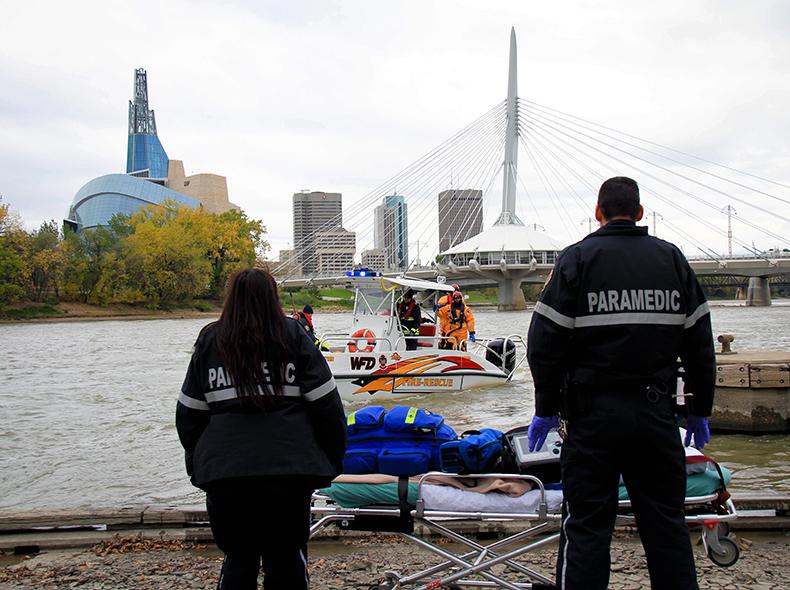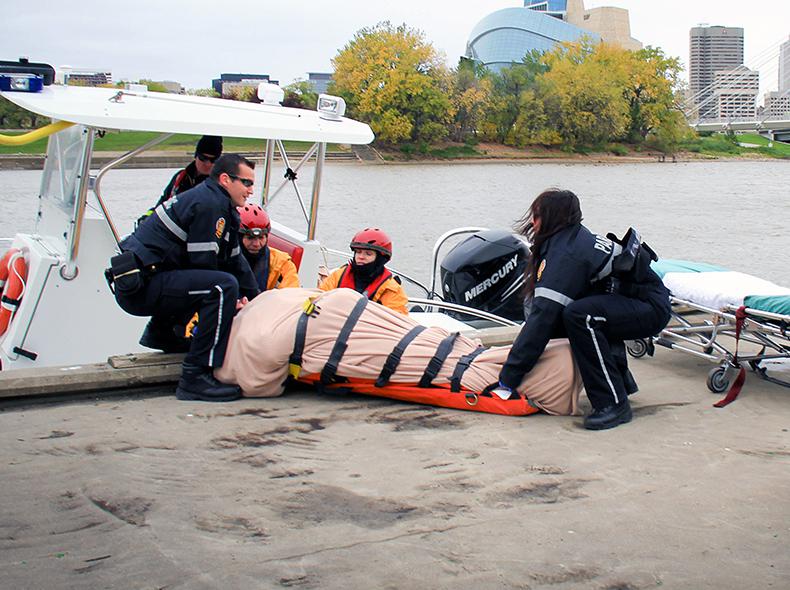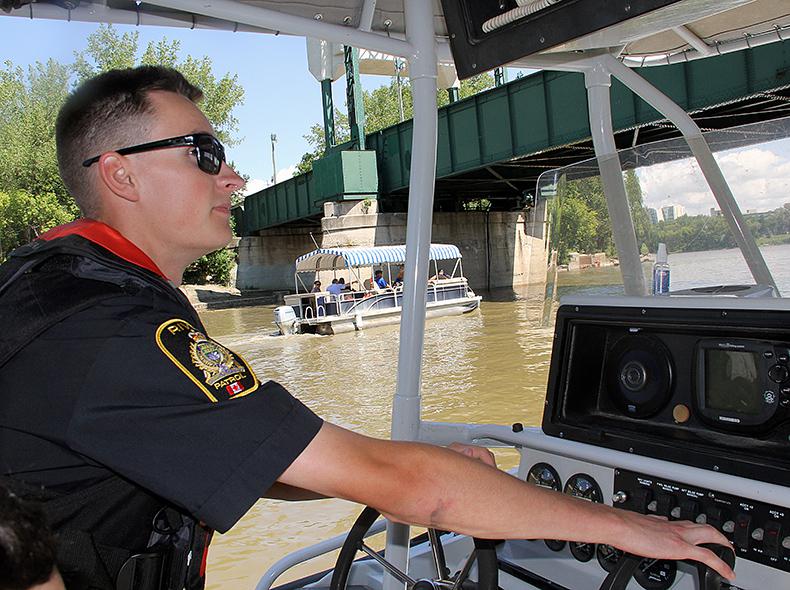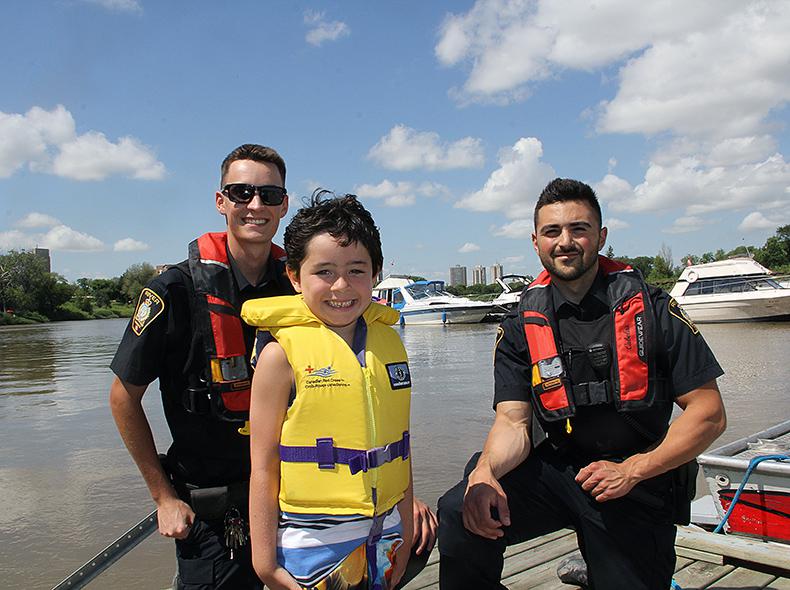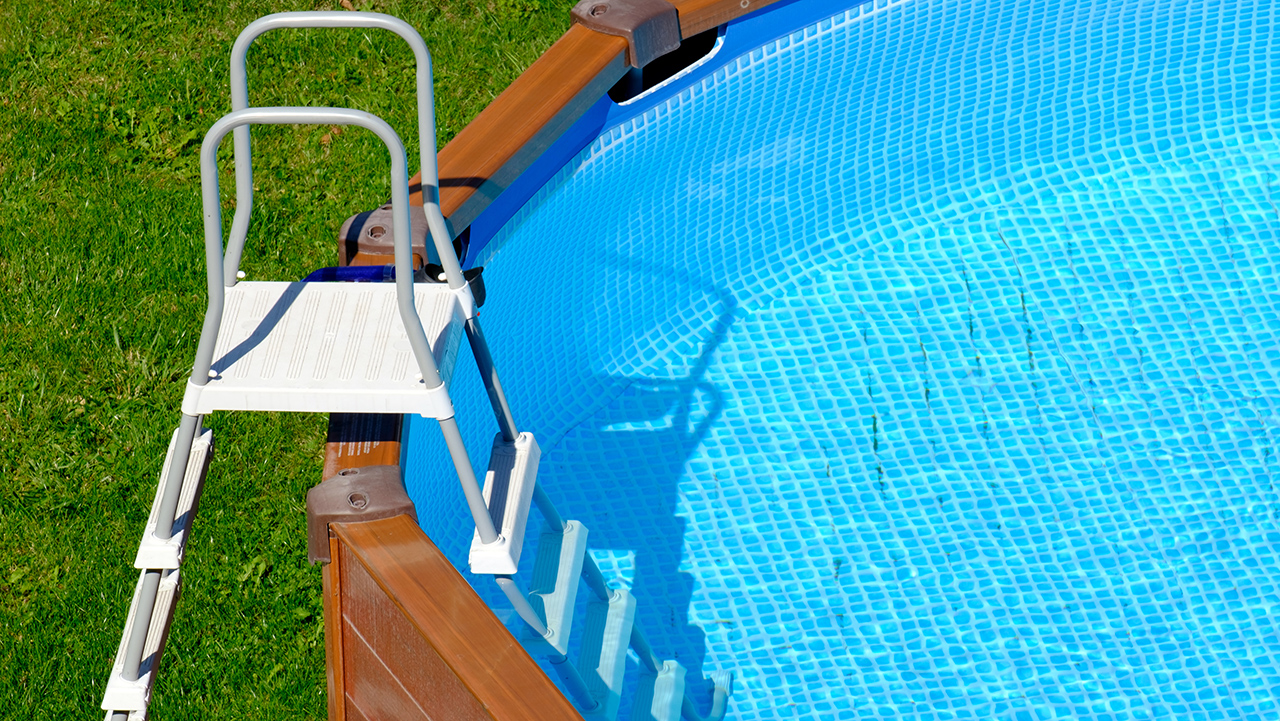
When summer weather arrives, many Winnipeggers take advantage of the heat by taking a dip in a pool. Others seek out activities on our many waterways, such as boating, kayaking, or canoeing.
However you beat the heat, it's important to do so safely and responsibly. Each year, the Winnipeg Fire Paramedic Service (WFPS) responds to approximately 150 water rescue calls. Not surprisingly, the summer months are the busiest for these types of calls. Newcomers to Canada are particularly at risk. They may be unfamiliar with the hazards water can present and the steps needed to stay safe.
We want everyone spending time outdoors and being active, but we want them to do so safely. By following simple safety strategies we can prevent tragedy.
Wear a life jacket
Always wear a life jacket when on a boat or participating in other activities on the river. If you don't own a life jacket, you can rent one through the Recreation Equipment Rentals Program.
Supervise
Children should also always be supervised when in, or around, water – even if they know how to swim.
The Lifesaving Society’s Annual Drowning Report shows lack of adult supervision is a major contributing factor to child drowning deaths in Manitoba. In all cases, an adult supervisor was found to be either absent or distracted.
Adults and caregivers should always be within arm’s reach of young children when near or in the water. Unattended children under the age of five have a higher risk of drowning because they are quick and curious. They are also the least capable of self-rescue of any age group.
Educate children
Have conversations with children of all ages about staying away from retention ponds and river banks. This is especially important when they are old enough to be left unsupervised and may be playing with friends in their neighbourhood.
Check the water conditions
It's also important to monitor river and weather conditions before you head out. Changes in wind direction and speed, or sudden storms can make it more difficult to control boats, kayaks, and canoes.
Poor weather conditions also makes rescues more difficult and dangerous for our responders.
Stay sober
Another common factor in many of the calls WFPS attends to is impairment. Never operate a boat while impaired by alcohol, cannabis, or any other substances. In fact, the WFPS recommends avoiding all activities on or near the water while impaired. Misadventure on our waterways by residents under the influence is always preventable.
Boating while impaired isn’t just dangerous, it’s also illegal and can result in arrest and criminal charges.
Follow the regulations
Boaters are required to keep standardized safety equipment on board their boat. The list of equipment and requirements is based on the size of a boat. Visit Transport Canada’s Office of Boarding Safety for more information and safety tips. Failing to have the required safety equipment can potentially jeopardize your safety. It can also result in a fine for missing equipment.
The Winnipeg Police Service's River Patrol will be on the waterways and riverbanks. Their job is to keep residents safe and respond to river-related calls. It serves both an enforcement and education role. If you have any questions, always feel free to ask the members.
Want to learn important swimming and lifesaving skills? Take one of our Leisure Guide swimming lessons or aquatic leadership training courses. You can find current course offerings and registration information through leisureONLINE.
Originally posted on June 10, 2020

